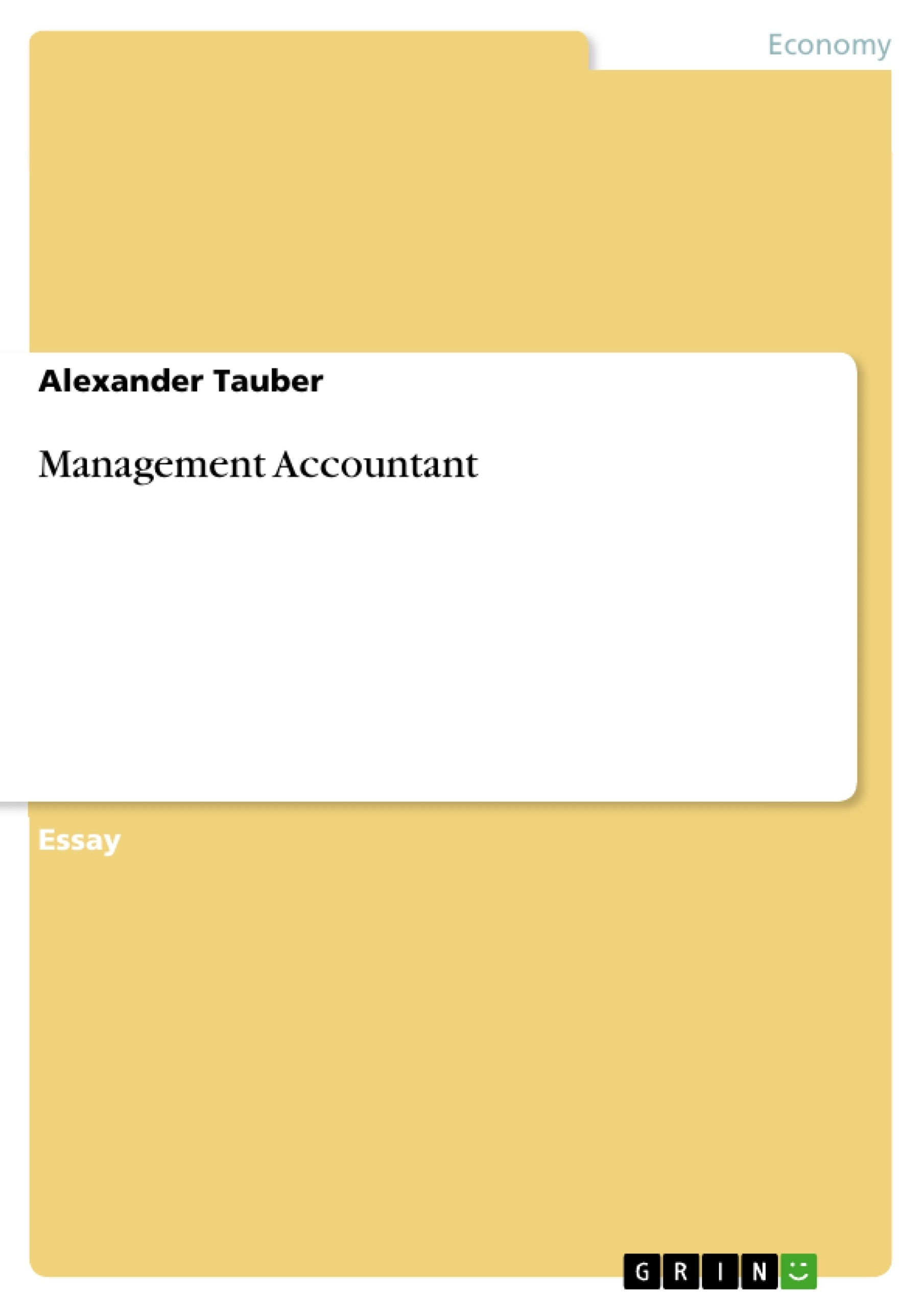Controlling is the process of monitoring and analyzing activities for making sure that they are accomplished as planned and correcting any deviations. However, in the course of time, the area of responsibility of management accountants has changed. In the following essay we show the changing role of management accountants in recent time and in different cultures.
In the first part of our paper we discuss the role of controllers and how it changed in recent time. The second part is about the four types of management accountants, which are the "discrete" type, the "safeguarding" type, the "partner" and the "omnipotent" controller, based on a field study conducted by Lambert and Sponem. With the help of a case study about problems in the daily life of controllers in a french aeronautics firm form Morales and Lambert we will show different inconveniences, which come along frewuently with the modern type of management accounting. Another question we will discuss in this essay deals with the controller's role in different cultures of several countries, where a paper by Granlund and Lukka was taken as the basis. In the last part we included some practical experiences which were gained in a practicum made by Patrick and we try to compare these experiences with the theoretical part of our essay in order to check the findings from the three afore mentioned papers our work is based upon.
Inhaltsverzeichnis (Table of Contents)
- Introduction
- Changing role of management accountants
- Management accountants role in general
- The four types of management accountants
- Problems with the changing role of management accountants
- Making data reliable
- Producing managerial tools
- Participating in board meetings
- Participating in decision-making
- Management accountant's role in different cultures
- Practical experiences
- Overall setting of the department
- Practical problems vs. theoretical problems
- The question of cultural differences
- Conclusion
Zielsetzung und Themenschwerpunkte (Objectives and Key Themes)
This essay examines the evolving role of management accountants in modern organizations. It explores how their responsibilities have shifted over time, considering the impact of cultural differences and the increasing emphasis on collaboration and decision-making.
- The changing role of management accountants from traditional “bean-counters” to business partners.
- Challenges faced by management accountants in their expanded role, including data reliability and participation in decision-making processes.
- The impact of cultural differences on the role of management accountants.
- The importance of communication, analytical skills, and team-orientation for modern management accountants.
- The increasing expectations of management accountants in terms of participation, collaboration, and decision-making.
Zusammenfassung der Kapitel (Chapter Summaries)
- Introduction: This chapter sets the stage by introducing the concept of controlling and outlining the essay's purpose, which is to explore the changing role of management accountants. It briefly discusses the structure of the essay and the research sources used.
- Changing role of management accountants: This chapter examines the evolution of the management accountant's role, discussing the transition from a traditional, data-focused position to a more collaborative and decision-oriented one. It explores how management accountants are expected to work closely with managers, contribute to decision-making, and become active participants in the business.
- Problems with the changing role of management accountants: This chapter discusses the challenges that management accountants face in their expanded role, such as ensuring the reliability of data, developing effective managerial tools, and navigating the complexities of participating in board meetings and decision-making processes.
- Management accountant's role in different cultures: This chapter explores the influence of cultural differences on the role of management accountants, highlighting variations in expectations, communication styles, and approaches to decision-making across different countries.
- Practical experiences: This chapter shares real-world experiences gathered through a practicum, comparing them to the theoretical findings presented in the earlier chapters. It sheds light on the practical challenges and opportunities encountered by management accountants in their daily work.
Schlüsselwörter (Keywords)
Key topics and concepts covered in this essay include the changing role of management accountants, data reliability, decision-making participation, cultural differences, collaboration, communication skills, analytical thinking, team-orientation, and the transition from traditional “bean-counters” to business partners.
- Quote paper
- Alexander Tauber (Author), 2015, Management Accountant, Munich, GRIN Verlag, https://www.grin.com/document/505803




